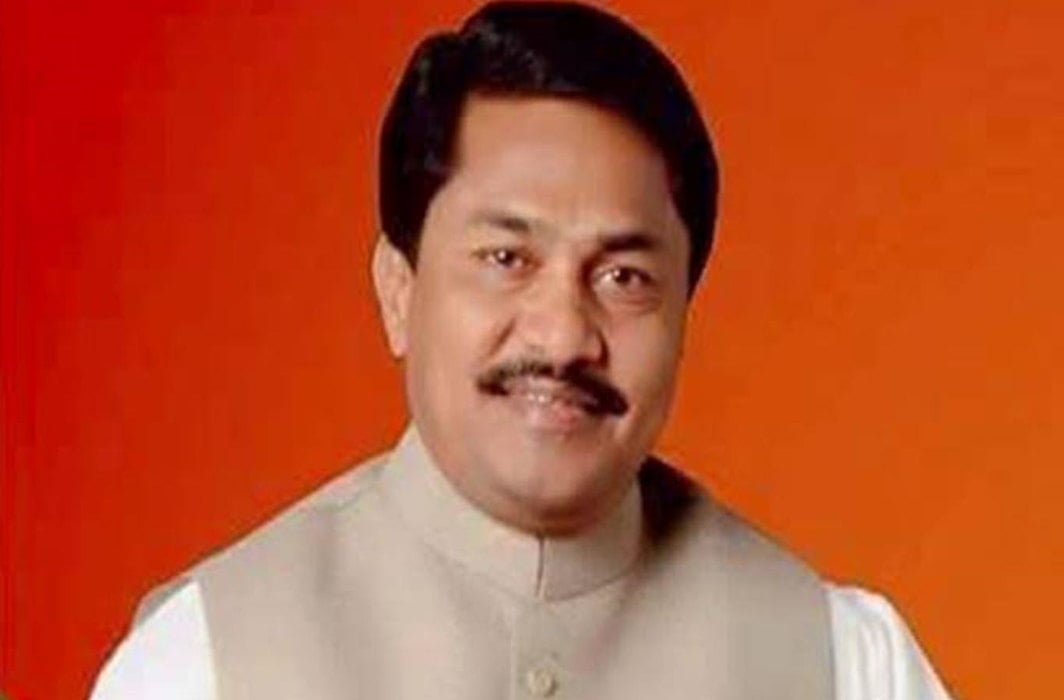[vc_row][vc_column][vc_column_text]A blow dealt, a jolt received: as the BJP went after suspended Congress leader Mani Shankar Aiyar over his comments against Prime Minister Narendra Modi, a Lok Sabha MP from its own fold quit the party and his parliamentary seat on Friday, criticising Modi government’s style of functioning.
The development comes a day before the first phase of polling for Gujarat Assembly on Saturday, Dec 9.
BJP Maharashtra leader Nana Patole announced on Friday that he had quit BJP and resigned from the Lok Sabha. He had been elected from Bhandara-Gondiya, a seat had wrested from NCP’s Praful Patel.
Patole who said he had submitted his resignation to Lok Sabha Speaker Sumitra Mahajan’s office and also to the Bharatiya Janata Party leadership, had criticised Modi earlier this year saying that the PM does not like being questioned or to listen to any criticism.
He had also criticised the BJP-led Maharashtra government for the way it was implementing the farm loan waiver scheme. He said the government was insensitive to farmers’ problems and farmer suicides. Patole had also extended support to senior BJP leader Yashwant Sinha in his agitation for farmers at Akola in Maharashtra earlier this week. Sinha has also been severely critical of Modi government’s handling of economy.
Patole said he had quit the Lok Sabha and the party since he was “deeply anguished and felt let down by the party”. His resignation letter addressed to Mahajan read: “Respected Madam, I hereby tender my resignation of my seat in the House with effect from today i.e. 08/12/17.”
“The objectives with which I had joined the (BJP) party have been belied, but now (post-quitting) I am free of the turmoil in my mind,” Patole told journalists after submitting his resignation letter to the Lok Sabha Secretariat.
He said that all central ministers ‘were always in a state of fear’ and that he was on the hit list but was ‘not afraid of anyone’.
Nana Patole gave 14-point resignation letter accusing PM Modi and Maharashtra CM Devendra Fadnavis of pursuing anti-people policy, said India Today. He said:
There has been an increase of 43 per cent in farmers’ suicides over the last one year. The government had promised to give one-and-a-half times the existing price for produces to the farmers, but they are not getting adequate price. The government has not implemented the recommendations of the Swaminathan Commission report for farmers’ benefit.
The state of unemployment is very serious while the government had promised to provide employment to 2 crore youths. The government has not taken any measure for employment generation. There has been 90 per cent reduction in government jobs.
The nomadic people are backward in educational, social and economic spheres in Maharashtra and other parts of the country. But, the government has not implemented Renke Commission’s recommendations for their benefit.
The state of economy is pathetic.
Crores of people were rendered jobless due to demonetisation. Youths have been thrown out of jobs from private banks.
Small industries have almost shut down after GST.
The government has failed in providing reservation due to which SC/ST and OBC communities are in distress. The government has even acted against its own promise of conducting caste census to know the exact population of OBC community. Till date OBC population is not known.
The provision to penalise poor for keeping less than minimum amount in bank accounts is not going down well with people. Even the LPG subsidy is being lost to penalty for non-maintenance of minimum amount in bank accounts.
Farmers are being exploited due to non-availability of seeds and fertilizers. Farmers are also facing problems in selling their produces in the mandis.
The government schemes have not been properly implemented efficiently which led to policies like the Prime Minister Crop Insurance Scheme become a failure.
Lack of knowledge on the part of farmers for the use of chemical insecticides led to further trouble for the farmers.
Lack of compensation for the loss of crops. The farmers were asked to register their complaints online which is not in their favour.
The incidents of farmers’ suicide increased in the last three years. But, the government did not take measures to put a check on this trend.
The government’s policy is in favour of corporate world. It seems that the government’s intention is to favour contract and privatisation.[/vc_column_text][/vc_column][/vc_row]


 India News7 hours ago
India News7 hours ago
 India News6 hours ago
India News6 hours ago
 Latest world news7 hours ago
Latest world news7 hours ago
 Cricket news6 hours ago
Cricket news6 hours ago
 Latest world news3 hours ago
Latest world news3 hours ago
 LATEST SPORTS NEWS23 mins ago
LATEST SPORTS NEWS23 mins ago













